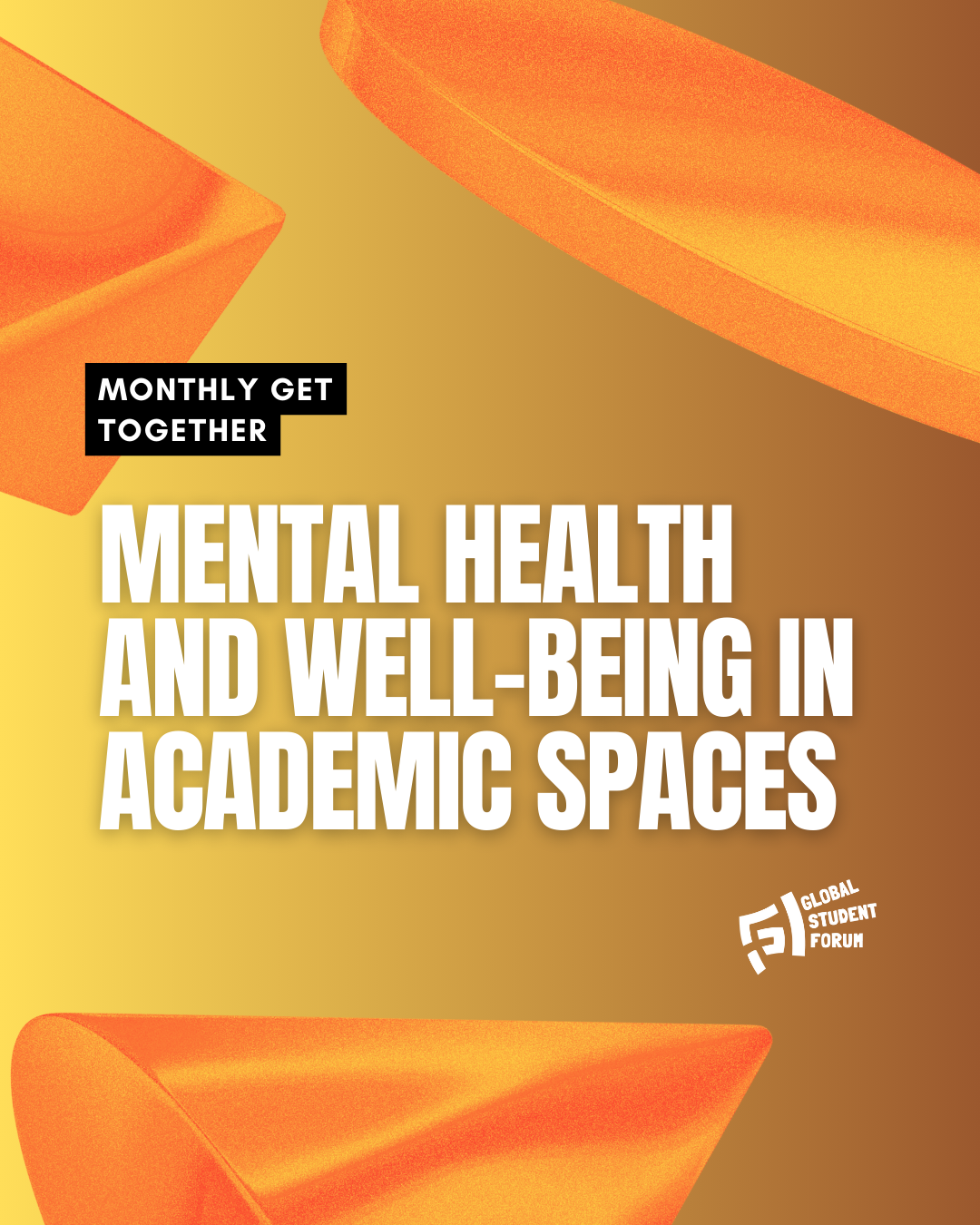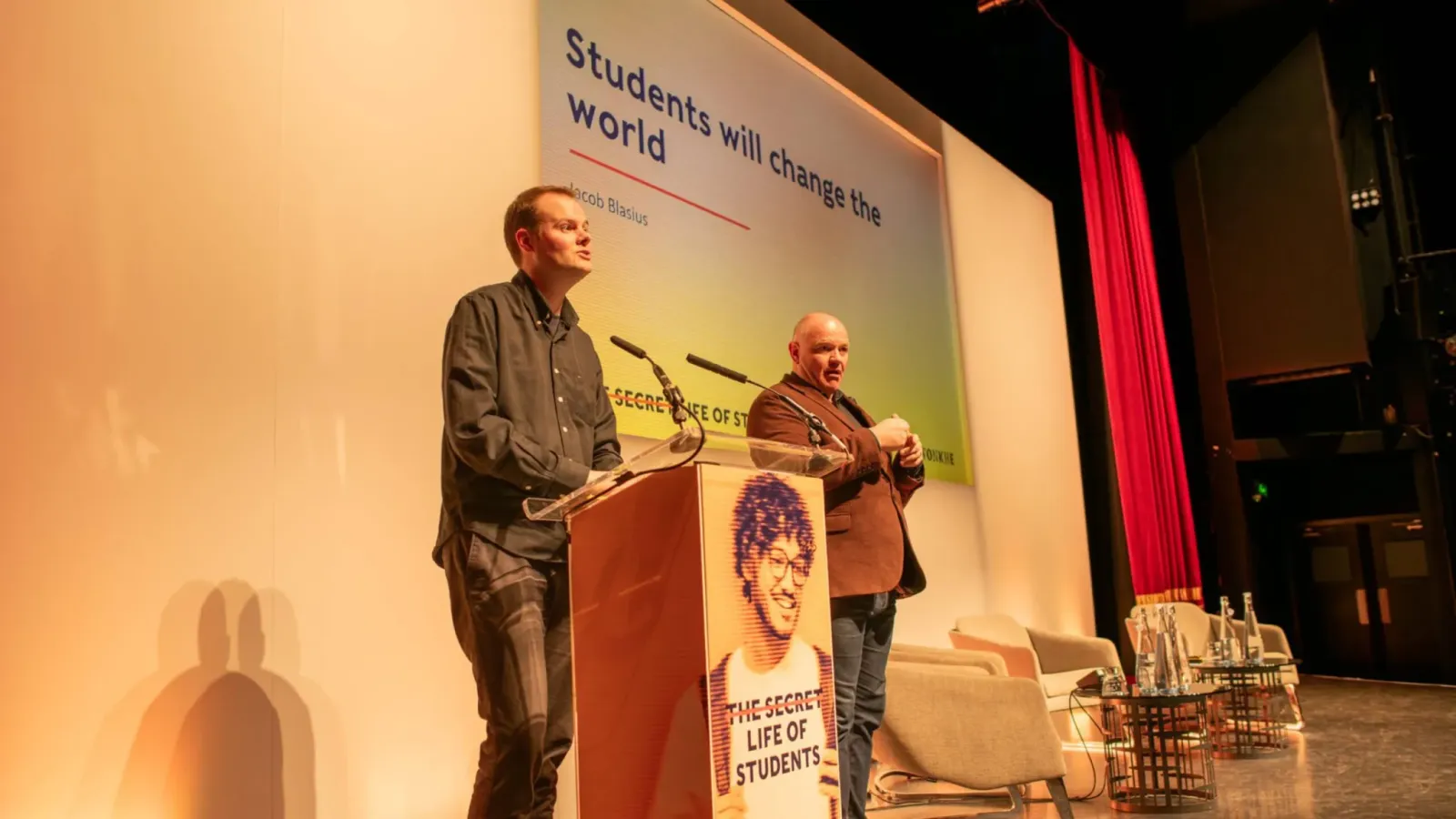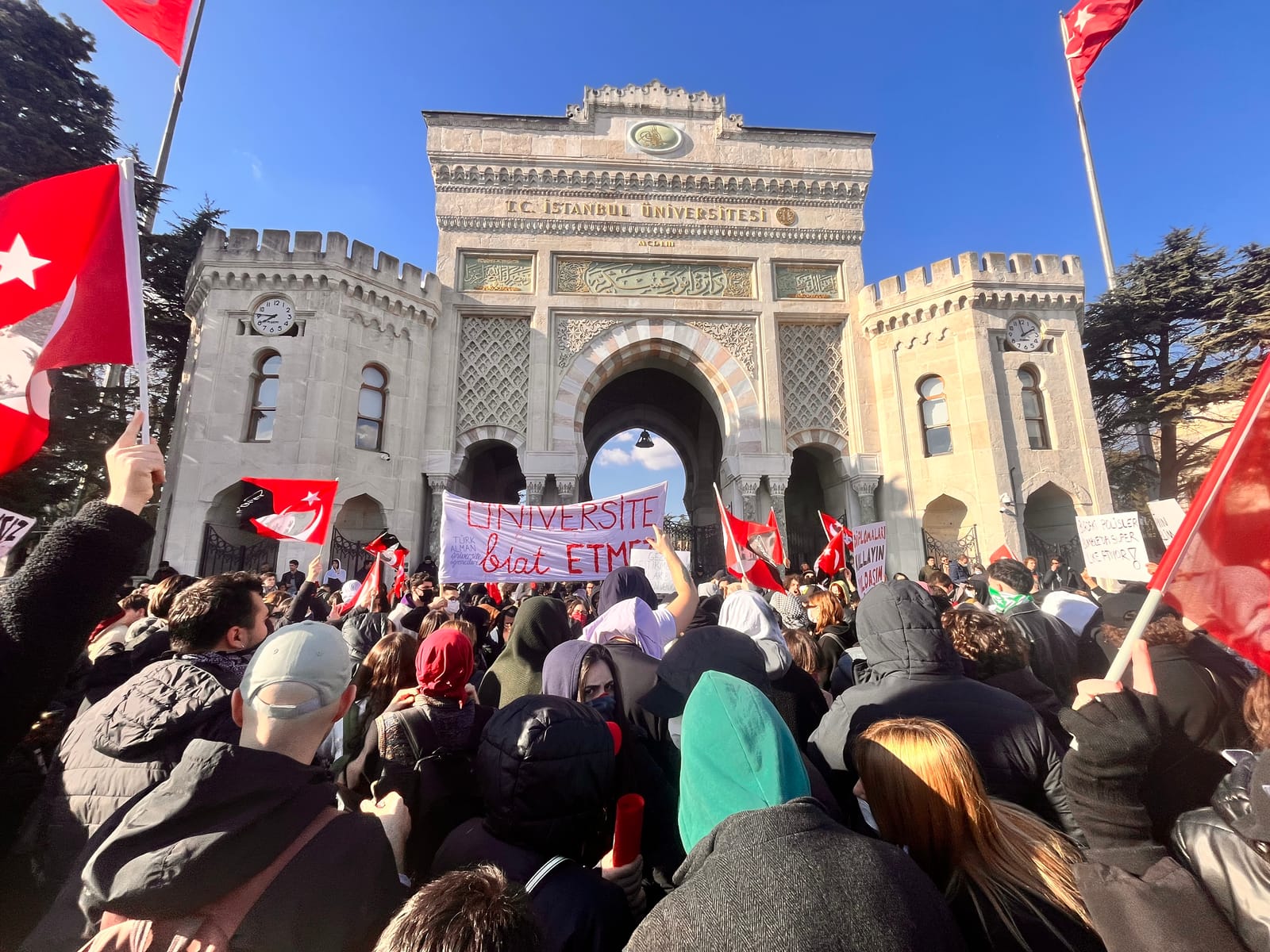Communique concerning the United Nations Youth Office & Selection Process – Assistant Secretary General for Youth Affairs
Download the full position paper here:
Student Movement Communiqué United Nations Youth Office
Preamble
In September 2022, amid the 77th United Nations General Assembly, member states decided to establish the United Nations Youth Office as a dedicated office for youth affairs in the Secretariat. Resolution 76/306 marks a significant development in the field of youth engagement and represents a historical chance to raise the importance of young people’s political agency within the UN system and to find synergies between various UN youth efforts and programmes.
The international student movement of secondary and tertiary students umbrellaed under the Global Student Forum welcomes the UN General Assembly’s adoption of the resolution. As the largest global, democratic and representative youth-led movement advocating for the social, economic, cultural and educational interests of predominantly young people, we have convened national and regional unions of school and university students to agree upon their priorities for the emerging structure. Involving more than 300 elected delegates from around 100 countries in the scope of four continental and one global consultation, we have adopted a common vision and aggregated our concerns and aspirations for the UN Youth Office in this position paper representing the collective voice of the 300 million learners within our constituency.
Resources and agency for young people
Our world is home to 1.8 billion youth, many of whom live in developing countries, many of whom suffer from breathtaking domestic and global inequalities and the economic injustices our international system is reproducing. What young people need is an unprecedented and highly effective advocacy tool to address political realities and catalyze action to influence the decisions that matter for the lived condition they are facing. To materialize into such an agent of change, the initiative needs significant financial resources, to sustain its operational costs and staffing but also to allow grant making to existing representative youth and student organizations working on the ground.
There is much talk about the need to invest in youth and the youth sector, however investments in democratic structures for the interest representation of young people remains marginal. This needs to change. The UN Youth Office has a responsibility to strengthen and support a constituency of key youth and student organizations to inform its work and establish democratic mechanisms to allow bottom-up determination of the office’s political agenda.
This time not governments and elderly politicians, not large private foundations and corporate actors, but elected young people speaking on behalf of their peers should be holding the wheel.
Meaningful youth engagement as an essential element of inclusive and sustainable development.
Youth engagement is only meaningful if the involvement of young people in decision making process has an actual impact on the decisions that affect their lives and communities. We need to go beyond simply giving youth a voice and evolve to systemic participation of young people as valued partners in decision-making, planning, implementation, and evaluation of UN policies, programs, and projects at all levels.
The UN Youth Office needs to facilitate a safe and supportive space for young people to express their opinions, ideas, and experiences, ensuring that their contributions are taken seriously and acted upon. It needs to become an unprecedented institution for youth empowerment, supporting youth-led organizations, promoting youth participation in governance structures, and engaging young people in global initiatives and dialogues. To do so it must also build young people’s skills, and create opportunities for their personal and professional development while recognizing the diversity of different experiences, needs, and perspectives to ensure that they are included in the discourse regardless of an individual’s gender, ethnicity, religion, disability, or socioeconomic status.
What we expect from the UN Youth Office
Global Solidarity and Capacity Building: The UN Youth Office should amplify awareness for the struggles of young people around the world, addressing the needs of marginalized communities but also drawing attention to youth activists where they face political repression and discrimination. It should enable youth-led organizations and young people to connect with their counterparts in other countries, lessening their sense of isolation and building active solidarity that translates into political action on the international stage. The structure should continuously build the capacity of youth-led organizations where they are weak or nascent by organizing training and best practice exchanges through which youth can learn from each other, enhance their mobilization strength and help develop their professional networks. The UN Youth Office should further work closely with other UN agencies, governments, civil society organizations, and private sector partners to leverage their resources and expertise in support of youth-led organizations and youth development initiatives. Furthermore it should engage in advocacy efforts to promote youth rights and inclusion while raising awareness about the opportunities and challenges faced by young people around the world.
Political Representation and Democratic Governance: The UN Youth Office must facilitate the engagement of youth and student representatives who are elected by and accountable to their peers instead of appointed by governments, within the broader framework of the UN. Instead of building new networks and focusing on half hearted top-down attempts to bring young people together, the office should convene and strengthen a large scale constituency of existing representative youth and student-led organizations that act as a democratic foundation and accountability mechanism, providing guidance and mobilization support for the elected representatives within the UN Youth Office.
Promoting Meaningful Youth Participation: The UN Youth Office must work to increase youth participation in political and decision-making processes at the local, national, and international levels. It must become a platform for youth engagement, building the capacity of young people and youth-led organizations to engage in political processes, and promoting youth-led advocacy campaigns.
Investing in Youth & Student-led Organizations: The UN Youth Office should work to create an enabling environment for youth and student-led organizations, providing access to sustainable funding, training and networking opportunities. This will enable young people to create innovative solutions and impactful campaigns that target social and economic challenges and contribute to sustainable development.
Research, Analysis and Strategy: Tasked to represent and advocate for the interests and rights of young people, the UN Youth office should dedicate resources to conduct research, analysis and strategy development on key issues affecting young people and so contribute to evidence-based policy and decision making in the best interest of the youth.
Advancing Gender Equality: The UN Youth Office has to recognize that gender inequality remains a significant barrier to the empowerment of young people, particularly young women and girls. It should therefore prioritize gender parity in its leadership team and general staffing but also focus on gender equality in all its initiatives, including promoting access to quality education, reproductive health care, and economic opportunities for young women and girls.
Addressing Climate Change: The UN Youth Office must recognize that climate change poses an existential threat to the future of young people. It therefore must support youth and student-led initiatives aimed at mitigating the impact and slowing the progression of climate change, including through promoting climate change education, clean energy solutions, reducing carbon emissions, and advocating for climate justice for those who suffer the most while having contributed the least.
Strengthening Peacebuilding and Conflict Resolution: The UN Youth Office will need to support young people’s participation in peacebuilding and conflict resolution initiatives, strengthening their capacity to prevent and resolve conflicts peacefully through the promotion of dialogue, reconciliation, and social cohesion, particularly in areas affected by conflict.
Decolonialisation: Eradicating and undoing the legacies of colonialism and the effects it had on the political, economic, educational, societal and cultural structures requires urgent redress. The UN Youth office should therefore analyze the ways in which colonialism and its aftereffects continue to influence the organization’s operations and policies. In order to create a more just and equitable future for all young people, the UN Youth office should confront the ways that colonialism continues to influence the organization’s practices and priorities. A lot of structural challenges facing young people across the globe require the dire need of redressing from the aftermath of colonialism, by specifically decolonising education systems and the realm of international politics.
Economic and Tax Justice: The issue of economic and tax justice remains at the heart of most challenges to a prosperous future for young people on this planet. Progressive taxes and the taxation of multinational corporations engaging in tax avoidance and tax fraud are among long overdue and desperately needed measures to strengthen the fiscal budgets needed for providing high quality public services such as social security, education and health. The UN Youth Office needs to become a leading advocate for the redistribution of global wealth and the provision of public services for young people.








